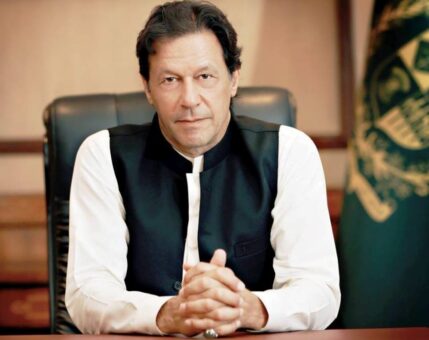ISLAMABAD: Prime Minister Imran Khan on Monday directed authorities to intensify efforts to attract more investment from China, underscoring the importance of industrialization and economic growth for Pakistan’s future.
(more…)Tag: CPEC
-
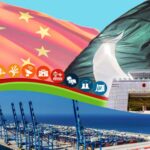
Work on CPEC projects in full swing: Asad Umar
ISLAMABAD: Asad Umar (Minister for Planning, Development, and Special Initiatives) on Friday said that work on projects under China Pakistan Economic Corridor (CPEC) are continued in full swing.
He dispelled the impression of slowing down the pace of the CPEC projects saying that major work of the CPEC projects was completed during the Pakistan Tehreek-i-Insaaf (PTI) government.
He said in first phase of CPEC, two major sectors- power and infrastructure, were under the main focus.
“Power projects with an installed capacity of 3,340 MW were completed during the previous government while 5,864 MW of power projects were being completed during the current government’s tenure,” he said while addressing a press conference here.Apart from it, he started work on another 1824 MW project that had also been started recently that would be completed after the tenure of the current government.
In the infrastructure and road sector, the minister informed that the PML-N government completed 394 kilometers long motorways and highways under CPEC while the current government had so far completed 413 km of the motorways and highways.
Asad Umar said the PML-N government totally ignored the Western Corridor that was the heart of CPEC.
He said the Gwdar-Hoshab road was completed by the previous government while the Hakla-Dera Ismail Khan motorway was initiated by the PML-N government who completed 42% of the project while the rest was completed by the current government.
Apart from these two projects, the previous government could not reach even the initial approval stage of any of the road projects on the Western alignment, he added.
The minister said the DI Khan-Zhob road (210 km) was approved and a loan application had been submitted while negotiations for the loan were in process.
Similarly, the contractor for the Zhob-Queta project had been mobilized and PC-1 of the Quetta-Khuzdar road was approved while funding for this project had already been allocated in the Public Sector Development Programme (PSDP) 2021-22.
He informed that the current government had completed 67% of the work of the 110 km Khuzda-Basima road while it would also complete the rest work soon.
Likewise, the 146 km Hoshab-Awaran road project had also been approved and the contractor had been mobilized. The Hoshab-Awaran project is an integral part of the CPEC central alignment that connects the port city of Gwadar with Sindh.
“In fact, real work on Western Corridor of CPEC was started during PTI government,” he said adding that it did not wait for the Chinese investment and started work on the projects with its own resources under PSDP.
The minister informed the government was also starting work on the connecting roads to the Western Alignment.
Peshawar-DI Khan Motorway project is one such project which has recently been approved.Similarly, the 460 km Karachi-Quetta-Chaman road has also been approved and one of the portions would be completed by the government itself while the other sections of this project would be constructed under Public-Private Partnership.
Likewise, the government has also accorded approval to other such roads such as Nokundi-Mashkel road, Mashkel-Panjgur road, Awaran-Jhal Jhao road.
The minister said these connecting roads and the Wester Alignment were being built to take maximum benefit of the opportunities to be open up in Afghanistan after peace and stability prevailed in the country.
Asad Umar said after completion of the first phase, we were entering in the second but very important phase of CPEC under which investment would come to a range of sectors including industrialization, agriculture, livestock, science technology, and other social sector development sectors.
He said when the current government took over, not a single Special Economic Zone (SEZ) under CPEC was operational but now two SEZs Allama Iqbal Industrial Zone in Faisalabad and Rashakai in Khyber Pakhtunkhwa were operational while another SEZ named Dhabeji would also be functional soon once the Sindh government has selected the contractor for the SEZ.
Agriculture, he said was an important sector in which the Chinese had vast experience who would help Pakistan in strengthening the sector.
So far eight important initiatives in the agriculture sector have been approved under CPEC under which the Chinese would help Pakistanis to develop the sector.
He said the Chinese would help Pakistani farmers in increasing the per acre yield of the crops. Similarly, he said the Chinese would help in removing foot and mouth disease from the animals as this disease was the major hurdle in way of exporting Halal meat to the world.
-

Gwadar Airport to be fully operational in two years
ISLAMABAD: The progress on New Gwadar International Airport (NGIA) was on track and it would be fully operational by September, 2023.
(more…) -

China wants to help Pakistan in green revolution
BEIJING: China has shown willingness to share its experience to bring green revolution in Pakistan.
Pakistan is suffering from challenges of climate change, pandemic, and population growth. Smarter agriculture is the way forward for many countries including China.
“The integration of information technology and agriculture will bring about the third green revolution: agricultural digital revolution,” said Zhao Chunjiang from China’s National Engineering Research Center for Information Technology in Agriculture.
“By 2025, China’s digital agro economy will exceed a $100 billion”.
In the past, farmers laboured for hours in the fields. But now farm work can be done with internet systems, said a staff member of the exhibitor, Ningxia Green Pioneer (Lvxianfeng) Agricultural Mechanical Services Company, which has transformed local farming model with drones, precision hole-sowing machine, driverless harvesters and plant protecting devices, remote surveillance equipment, etc. supported by the Internet of Things, cloud technology, big data, etc.
“Spraying at a speed of 4.5 meters a second, each drone can complete what was used to be done by 25-30 workers per day, saving 80 per cent water, 30 per cent cost of plant protection, and 20 per cent-25 per cent pesticides,” company staff introduced to China Economic Net (CEN). “They can be used in rice, wheat, and maize. Take rice as an example, about $60 can be saved for each hectare.”
To better take the advantage of the efficient digital equipment that excels on vast stretches of land, the company takes a step further to push forward scale operation by bring the scattered lands together through land trusteeship, transfer, and shareholding.
A remote monitoring command service center has been set up for visible, standard, and digital farming. Soil, seedlings, pests, diseases, and disasters are monitored, early warnings are sent in case of abnormalities, and automatic solutions can be identified. From sowing, cultivating, to harvesting, the crops grow under close and accurate supervision.
“Under this whole-process land trusteeship, $230 can be saved per hectare”, revealed the company staff.
“Not all farmers trust in this new model at the beginning, but after getting to know and see what it can achieve, they started to acknowledge its benefits.”
If there is a chance, we are willing to join the Special Economic Zones (SEZs) under CPEC, company staff said.
-

China hails Pakistan for BRI initiative, exploring Silk Road
BEIJING: Pakistan and other countries have cooperated in the initiative of Belt and Road Initiative (BRI) besides exploring the Digital Silk Road, which reaped fruitful benefits.
Li Yikai, Deputy Director of Centre for International Economic and Technological Cooperation had a 2021 Online Silk Road Conference at Yinchuan, the northwest city of China.
The Deputy Director said, “From 2019 to 2020, there are notable achievements in digital development in BRI countries. For example, the Beidou Navigation Satellite System (BDS) was deployed in Pakistan’s airports, providing accurate timing services for the operations.”
Pakistan and China have cooperated for the satellite navigation system across a major area between both of the countries.
Pakistan has signed a contract with China’s Wuhan Landing Medical High-tech Co., Ltd. To introduce their artificial intelligence (AI) for screening cervical cancer in Pakistan.
In the 18 years of experience in the IT sector of Ericsson (China), Shoukat told CEN, “From 2019 to 2020, there are notable achievements in digital development in BRI countries. For example, the Beidou Navigation Satellite System (BDS) was deployed in Pakistan’s airports, providing accurate timing services for the operations.”
He further said, “Pakistan has a lot of potential in the IT sector. When Pakistani IT talents have the opportunity to venture abroad and work in countries like China, they will definitely bring very good results.”
-
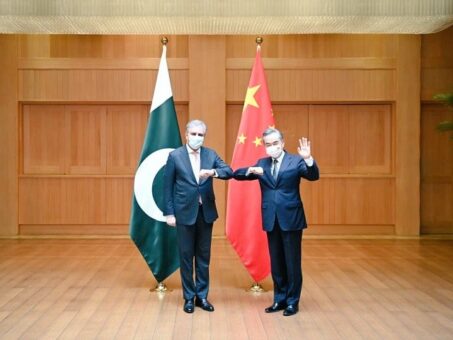
Pakistan, China reaffirm completion of CPEC projects
ISLAMABAD: Pakistan and China on Saturday underscored China-Pakistan Economic Corridor (CPEC) has entered the new phase of high-quality development, greatly contributing to the socio-economic development in Pakistan.
“The two sides will continue to firmly advance the construction of CPEC, ensure timely completion of under-construction projects, focus on economic and social development, job creation and improvement of people’s livelihood, and further strengthen cooperation in Industrial Park, infrastructure development, science and technology, medical and health, agriculture, human resources training, with the aim to continuously unleash the great potential of CPEC to make it a hub of regional connectivity,” a joint press release said.
Both sides agreed on the need to build health, industry, trade, digital and green corridors.
Both sides reviewed with satisfaction the remarkable achievements of CPEC.
The two sides look forward to convening the 10th JCC meeting to jointly promote the high-quality development of the CPEC and move forward the high-quality construction of BRI.
Both reached a consensus to collectively take measures to safeguard their common interests and promote peace, prosperity and development in the region.
The reiteration was made during a third session of the foreign ministers’ strategic dialogue in Chengdu, capital city of Sichuan province, China.
During their talks, Foreign Minister Makhdoom Shah Mahmood Qureshi and State Councilor, Foreign Minister of China Wang Yi exchanged views on bilateral strategic, economic and security cooperation, besides other global and regional issues.
Both the sides also discussed COVID-19 pandemic, peace and reconciliation in Afghanistan and international and regional issues of mutual interest.
On the invitation of the State Councilor and Foreign Minister Wang Yi, Foreign Minister Shah Mahmood Qureshi paid a two-day visit to China. The foreign minister was accompanied by senior officials. The visit was part of the high-level exchanges between Pakistan and China.
Both sides reviewed their cooperation on regional and international issues at multilateral forums such as the United Nations, Shanghai Cooperation Organization and ASEAN Regional Forum, and agreed to deepen coordination and cooperation to safeguard mutual interests and uphold principles of fairness and justice.
“Both sides reaffirmed their commitment to the purposes and principles of the UN Charter, and support for multilateralism, free trade and win-win cooperation,” it was added.
Both sides underscored that a peaceful, stable, cooperative and prosperous South Asia was in the common interest of all countries. Both sides agreed on the need to settle disputes and issues in the region through dialogue on the basis of equality and mutual respect. The Pakistan side briefed the Chinese side on the deteriorating situation in Jammu & Kashmir, including its concerns, position and current urgent issues.
“The Chinese side reiterated that the Kashmir issue is a dispute left over from history between India and Pakistan, which is an objective fact, and that the dispute should be resolved peacefully and properly through the UN Charter, relevant Security Council resolutions and bilateral agreements. China opposes any unilateral actions that complicate the situation,” the joint press release said.
Both sides recalled that the enduring Pakistan-China friendship has reached the momentous milestone of the 70th anniversary of establishment of diplomatic relations, being enthusiastically marked in the two countries with holding of more than hundred celebratory events throughout this year, demonstrating warmth and deep sentiments of their unshakable fraternal bonds.
In further strengthening their all-weather strategic cooperative partnership and together charting course for the Pakistan-China community of shared future in the new era, both sides were committed to firmly implementing the consensus reached between their leaders, enhance mutual strategic trust, strengthen all-round cooperation, maintain momentum of high-level exchanges, further advance Belt and Road partnership, promote bilateral relationship to a higher level, and delivering greater benefits to both countries and the two peoples.
Extending felicitations to the Chinese side on the 100th anniversary of the founding of the Communist party of China, the Pakistani side recognized CPC’s immense contributions for the Chinese people, for China’s stellar rise at the world stage, and its unrivalled achievement of lifting 800 million people out of poverty.
The Pakistan side wished the Chinese government and people greater success in achieving the goal of socialist modernization in 2035 and building a modern, prosperous, beautiful, democratic, culturally advanced and harmonious socialist country in 2049, under the inspiring and visionary leadership of the CPC, with Comrade Xi Jinping at its core.
Stressing that peace and stability in Afghanistan was vital for socio-economic development, connectivity and prosperity in the region, both sides called on all Afghan stakeholders for comprehensive ceasefire, and work together in earnest to achieve broad-based and comprehensive, inclusive, negotiated political settlement.
Both sides reaffirmed their commitment to facilitate and support “Afghan-led and Afghan-owned” peace and reconciliation process for the early realization of a peaceful, stable, united and prosperous Afghanistan, which would firmly combat terrorism and live in harmony with its neighbours.
Both sides reaffirmed their support for the peaceful reconstruction of Afghanistan, their readiness to expand economic and trade ties, and support Afghanistan in enhancing its capacity for independent development.
Both sides reviewed with satisfaction their close cooperation in successfully controlling the spread of COVID-19, cooperation in protective and medical equipment, vaccine development and ensuring early post-pandemic economic recovery.
The Pakistan side thanked China for its steadfast support to the vaccination drive in the country, and setting up of vaccine finish facility at the National Institute of Health in Islamabad.
“Chinese side expressed its resolve to continue assisting Pakistan in strengthening its national health systems and dealing with adverse socio-economic impacts of the pandemic,” press release said.
Both sides believe that the study of origins of the SARS-CoV-2 was a matter of science, and should not be politicized. The joint report of the WHO-convened global study of origins of the SARS-CoV-2, published this March, has drawn an authoritative and scientific conclusion of related issues.
This joint report should be recognized, respected and preserved, and should be treated as the basis of the WHO next stage of the origin tracing study as well.
“We hope that the WHO can, together with international community, defend the scientific and serious study of origins of the SARS-CoV-2 and oppose the actions to politicize the issue, and safeguard the favorable atmosphere for global cooperation against the Covid-19 pandemic,” the press release quoted the sides.
Offering condolences on the loss of precious lives caused by torrential rains and flooding in Henan province, the Pakistan side expressed hope that with strenuous efforts of the Chinese government, normalcy would be restored soon and affected people would return to their homes.
Both sides vehemently condemned the terrorist attack in Dasu which caused loss of precious lives and injuries to the Pakistani and Chinese workers.
The Pakistan side conveyed its profound condolences and sympathies to the bereaved families, emphasized that the sacrifices of Chinese nationals would not be in vain, and that China-Pakistan partnership would emerge stronger through this test.
The Pakistan side promised to ensure medical treatment, care and comfort of the injured.
“Both sides expressed their firm resolve to expose the culprits and their reprehensible designs through the ongoing joint investigation, give exemplary punishment to the perpetrators, ensure comprehensive safety and security of the Chinese projects, nationals and institutions, and prevent recurrence of such incidents,” it was added.
Both sides agreed on continuing their unyielding support on issues concerning each other’s core national interests.
The Chinese side reiterated its firm support to Pakistan in safeguarding its territorial integrity, sovereignty and independence, independently choosing a development path based on its national conditions, striving for a better external security environment and playing a more constructive role on international and regional affairs.
The Pakistan side reiterated its commitment to the “One China Policy” and firm support to China on core issues of its national interest, such as Taiwan, Xinjiang, Tibet, Hong Kong and South China Sea.
Later, addressing a joint presser along with his Chinese counterpart, the foreign minister expressed satisfaction over the bilateral ties between the two countries.
He said on the issue of bilateral ties, they were satisfied that these were moving in the right direction.
All the strategic, economic and security cooperation between the two counties was moving ahead with determination, he said, adding that both sides in their bilateral meeting held today, co-shared their point of views on further strengthening of this cooperation.
He said their delegation level talks were held in a very friendly and cordial atmosphere in which both sides reiterated support to each other.
Qureshi assured the leadership of China that Pakistan and China ‘are friends and will remain as friends….let the world should know that we are trusted friends’. ‘Pakistan and China are on the same page’, he further added.
The foreign minister also thanked the Chinese leadership for their reiterated commitment to the issue of Jammu and Kashmir.
Qureshi demanded that India should revoke its unilateral and illegal actions of August 5 on Indian Illegally Occupied Jammu and Kashmir and restore its status.
He also expressed his gratitude to China for its firm support to Pakistan in dealing with Covid 19 and by supplying doses of coronavirus vaccines.
-
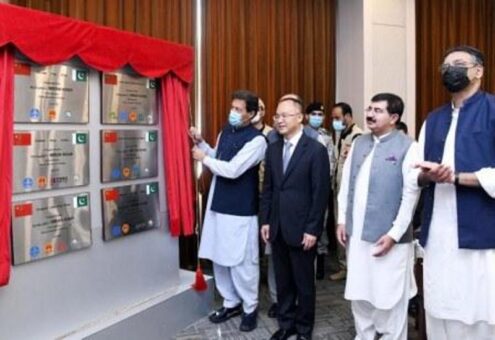
Prime Minister inaugurates first phase of Gwadar Free Zone
GWADAR: Prime Minister Imran Khan on Monday inaugurated the first phase of Gwadar Free Zone besides performing the groundbreaking of its second phase spread over 2,200 acres and also inaugurated three factories.
Addressing the launch of development projects and the signing ceremony of Memoranda of Understanding here in the port city, the prime minister said Gwadar would open up new avenues of opportunities for regional trade.
The prime minister said the future of Pakistan belonged to Gwadar, emerging as the ‘focal point of development’ and ensuring prosperity for the entire country.
Imran Khan mentioned the recently announced Rs 730 billion development budget for Balochistan by the federal government and said it was “historic”, and was aimed at uplift of the province and at mitigating the longstanding deprivation of its people.
“No country can progress unless it mainstreams all its areas and ensure development across the board,” he said, adding that connectivity was one of the major components of the Balochistan package.
The prime minister who arrived in Gwadar on a day-long visit inaugurated the first phase of Gwadar Free Zone besides performing the groundbreaking of its second phase spread over 2,200 acres also inaugurated three factories.
The prime minister said his vision of an emerging Pakistan was a steadfast nation that was committed to the prosperity of the country.
He said the government was focused on ensuring the provision of basic amenities in Gwadar and Balochistan, particularly clean water and electricity to encourage industrialization.
Imran Khan said the government was prioritizing development in far-flung areas of Balochistan, northern areas and rural Punjab.
The prime minister mentioned that Gwadar International Airport would encourage regional trade and boost economic activity.
He said a one-window operation was in progress to facilitate the investors and urged upon the provincial governments to ensure proper servicing of investors since the subject moved to them after the passage of the 18th Amendment.
Imran Khan thanked the government of China for the launch of water and solar projects in Balochistan, particularly in Gwadar.
“Pakistan can benefit from its strategic location and also from the expertise of its friend China, which is an economic power in the region,” he said.
He also mentioned the technical education provided by China to the youth of Gwadar, which he said, would prove greatly helpful as the foreign investment grew in future.
The prime minister mentioned several initiatives for the uplift of Gwadar including the university, employment under the Kamyab Jawan Programme, and the up-gradation of the equipment of local fishermen to ensure value addition of their catch.
He said the Prime Minister Office would regularly monitor the progress on the development plans initiated in Gwadar on a monthly basis.
The prime minister said regional countries had expressed interest in reaping the benefits offered by the Gwadar port.
In this scenario, he expressed concern over the deteriorating law and situation in Afghanistan, stressing peace and stability was extremely important for the continuity of development.
Chief Minister Balochistan Jam Kamal Khan said the provincial government had been collaborating with the CPEC Authority to resolve the issues of customs. He drew attention to the problem regarding the relocation of locals along Eastbay and mentioned that efforts were on for an amicable solution.
He said the Public Sector Development Programme for the current fiscal year covered the entire Balochistan and mentioned that the extension of Gwadar Hospital up to 200 beds, construction of the first university in Gwadar, border markets and uplift of villages were on the cards.
Chinese Ambassador Nong Rong said the cooperation between the governments of Pakistan and China had led several projects to see the light of the day. He said over the past eight years, the two countries accelerated their pace on several projects related to civic amenities, particularly clean water and solar plants.
He said Gwadar was a showcase of the “Chinese solution” for Pakistan’s development.
By taking a comprehensive way of development, he said, Gwadar Port would turn into a business hub. He said China would continue to extend support for a shared future with Pakistan.
Chairman CPEC Authority Lt Gen (retd) Asim Saleem Bajwa said the Gwadar Free Zone spread over 60 acres had been completed and 46 enterprises had become operational.
He said now, the groundbreaking of the second phase at the vast 2200 acres starting today would usher in a new era of prosperity in Gwadar and in Balochistan.
He mentioned that the personal interest of Prime Minister Imran Khan resulted in materialization of trans-shipment policy, Afghan transit policy, the framework signing and execution of border trade with Iran and the start of work at Eastbay Expressway.
He said several significant development projects were in progress including the Gwadar International Airport and a Vocational Institute to develop skills of the locals.
Bajwa said conspiracies were on the rise against CPEC, however, the commitment of the government greatly helped thwart such challenges.
Chairman Senate Sadiq Sanjrani, Foreign Minister Shah Mahmood Qureshi, Information Minister Chaudhry Fawad Hussain, Planning Minister Asad Umer, Minister for Defence Production Zubaida Jalal and Minister for Maritime Affairs Ali Zaidi were present.
Earlier, the prime minister before landing at the Gwadar Airport took an aerial view of the infrastructure built at the seaport including the Expressway.
On his arrival at the China Business Centre Hall, he was given a detailed briefing of the South Balochistan Development Package. He also held an interaction with the CPEC Workforce.
Chairman CPEC Authority and Chinese Ambassador ink Memoranda of Understanding for cooperation on development in Gwadar.
Moreover, seven regional countries including Saudi Arabia, United Arab Emirates, Kuwait, Oman, Egypt, Kenya and Qatar on Monday expressed their commitment for cooperation on the development of Gwadar.
With their respective ambassadors present at the ceremony attended by Prime Minister Imran Khan, the regional countries expressed their support for the development of Pakistan’s port city.
Prime Minister Imran Khan on the occasion also witnessed the signing of two Memoranda of Understanding with the government of China for carrying out development projects in Gwadar.
The accords included the implementation agreement on setting up of 1.2 MGD desalination plant to resolve the shortage of drinking water for the residents of Gwadar.
Other agreements included China’s grant for solar generators for South Balochistan, and the groundbreaking of North Gwadar Free Zone and Enterprises.
Also on the occasion, the Chinese investors through video-link from Shanghai showed the ‘Expression of Commitment for Investment’. Those who pledged to invest in Balochistan’s different sectors included Huang Weiguo (textile), Huang Daoyuan (prefabricated technology), Fang Hongyan (agriculture), Shen Jian (wool spinning), David Dia and Chen Yi (dairy processing) and Bao Dequan (textile).
The factories inaugurated on the occasion included the chemical fertilizer factory, Gwadar Animal Vaccination factory and lubricant factory, besides the opening of Gwadar Fertilizer Plant, Gwadar Animal Vaccine Plant, Henan Agricultural Industrial Park, Hengmei Lubricants Plant, Gwadar Free Zone Phase-2, and Gwadar Expo Centre.
(Courtesy: Associated Press of Pakistan)
-
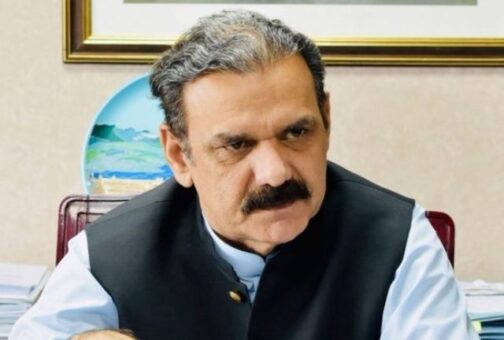
Pak-Iran trade to start soon through Gwadar Port: Bajwa
ISLAMABAD: Work for Iran’s trade through the Gwadar Port (in and out) is in progress and the trade will start soon through the port, Chairman China Pakistan Economic Corridor (CPEC) Authority Lt. Gen. (Retd) Asim Saleem Bajwa said on Monday.
“The Ramadan-Gabd crossing point near Gwadar is active and fully functional now, fencing work with Pakistan-Iran border is going on rapidly and new border markets are being established at the crossing points,” he said adding the smuggling to and from Iran is decreasing due to increase in regulated trade.
According to state media, the Chairman said after completion of development works of Gwadar Port and first phase of Gwadar Free Zone, Prime Minister Imran Khan was going to perform the ground breaking of second phase of the Zone.
He said as compared to the first phase which comprised of 60 acres of land, the second phase would be a huge project comprising of 2200 acres of land.
Chairman Bajwa said around 7 to 8 big Chinese investors from Shanghai would also participate in the ground breaking ceremony where they would make commitments in Gwadar Zone and inform about their future plans in Pakistan.
He said some 46 enterprises were engaged in the Free Zone phase-I while 12 factories were being established out of them three were completed.
He informed that the traffic at the port was increasing everyday and last year the trade volume increased by hundreds of times as 60,000 MT of cargo was transported during the year 2020-21 compared to only 1300 MT in the preceding year.
Besides, he said five LPG vessels were berthed at the Gwadar Port.In future, he said the cargo volume would increase with even higher pace as interest for transshipment and industrialization was increasing with every passing day.
He said the Prime Minister would also sign an accord for installation of desalination plant in the city with capacity of 1.2 million gallons per day. He said the project would complete within a year and this would be a gift from the Chinese government.
Furthermore, he said another water desalination plant with capacity of five million gallons per day was also included in the Prime Minister South Balochistan package.
Provision of basic facilities including electricity, water and health was the prime focus of Prime Minister Imran Khan, he added.
-
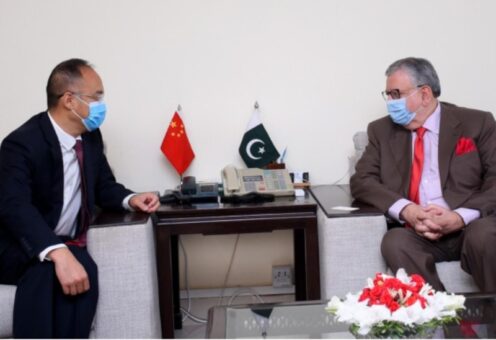
China desires to invest more for Pakistan’s economic growth
ISLAMABAD: Ambassador of the People’s Republic of China Nong Rong has expressed the desire of the present Chinese Government to invest more in all sectors to lift the economic standing of Pakistan.
The Chinese envoy said this at a meeting with Finance Minister Shaukat Tarin on Monday.
Nong Rong informed about the progress of Chinese investments in China Pakistan Economic Corridor (CPEC) related projects.
He expressed the desire of the present Chinese Government to invest more in all sectors to lift the economic standing of Pakistan.
He re-affirmed the commitment of Chinese Government to overcome any obstacle in deepening the bilateral ties between the two countries.
Federal Minister for Finance & Revenue while extending a warm welcome to H.E. Mr. Nong Rong stated that Pakistan and China enjoy long-term, broad based and multi-dimensional relationship.
Federal Minister for Finance & Revenue expressed the commitment of the present government to further strengthen economic relations with China.
He briefed the Chinese Ambassador about the measures introduced in the recent budget for ensuring inclusive and sustained economic growth in the country.
Federal Minister for Finance & Revenue expressed hope that not only Chinese government but the Chinese entrepreneurs would also like to enhance their investment in the field of finance, industry and agriculture development of Pakistan.
Finance Minister and Chinese Ambassador both agreed to take the bilateral relations of both countries to next level in order to ensure sustained economic growth. Federal Minister for Finance briefed the Chines Ambassador that increase in exports was the top most priority of the Government.
He particularly referred to the budget proposals which would specifically promote exports in the long run and usher in growth in the economy.
Federal Minister for Finance & Revenue conveyed full assurance on behalf of the Government of Pakistan to extend complete support in enhancing the level of economic cooperation between the two brotherly countries.
He stated that Government of Pakistan would provide full facilitation to the Chinese companies in Pakistan to ensure long term and sustainable foreign investment in the country, which would lead to economic growth, peace and prosperity for Pakistan.
Minister for Finance & Revenue stressed upon the need for economic uplift of the entire region and emphasized that Pakistan is willing to play its role in this endeavor.
Both sides agreed to hold regular review meetings to ensure fast track implementation of ongoing projects.
-

FBR proposes CPEC chapter in Customs Rules
ISLAMABAD: Federal Board of Revenue (FBR) on Wednesday issued draft customs rules for the introduction of a separate chapter on procedures for China Pakistan Economic Corridor (CPEC) related activities.
In this regard the FBR issued SRO 47(I)/2021 to make amendment in the Customs Rules, 2001.
Gwadar Tax Free Zone Rules have been introduced as a sub-chapter . According to these rules, an investor is required registration to operate under customs computerized system.
The FBR said that goods imported into a free zone shall be examined and assessed in accordance with the provisions of the Customs Act, 1969 and rules made thereunder. The exemption granted under the act and ordinance shall be applicable to plant, machinery, equipment, appratues and materials to be used solely within the limits of a free zone and to goods imported into the zone by the investors.
The FBR further said that entry of goods imported for free zone shall not be refused except when the goods are liable to restrictions or prohibitions imposed on grounds of public morality or order, public security, hygine or health or for sanitary or phyto-sanitary considerations, or relating to the protection of parents, trademarks, or intellectual property rights as envisaged in import policy order.
Hazardous goods may be allowed to be admitted to a free zone only when a safe area specially designed for its storage has been made available within the free zone to the satisfaction of the licensing authority and customs as well as such conditions under relevant national laws have been complied with.
The FBR said that duty and tax free vehicles shall be allowed to be imported by the concession holder and its operating company for construction, development and operating of Gwadar Port and free zone area under the regulatory mechanism. The regulatory mechanism for such vehicles, including the number and types importable, shall be devised by the ministry of Port and Shipping and FBR, in consultation with the provincial government if so required, and shall be notified by the FBR.
The FBR further said that goods, excluding petty items, from the tariff area shall be admitted into the zone upon completion of export formalities which are observed for export to foreign countries.
